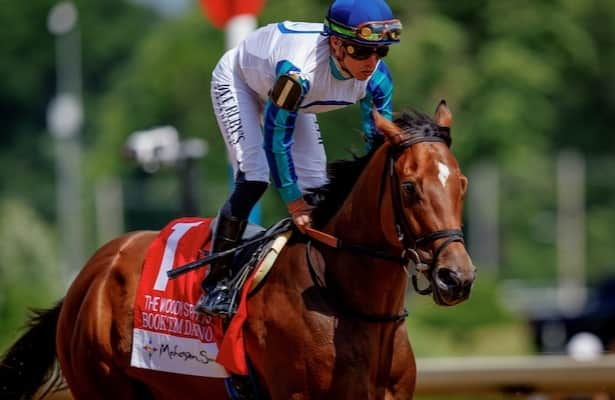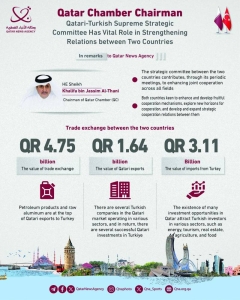‘World class’ Hong Kong racing can boost tourism across GBA, Jockey Club chief says

Hong Kong’s role as a world leader in horse racing means significant potential for growing tourism, with the Jockey Club’s CEO predicting the number of people travelling from mainland China to watch races in the city could double by 2030.
Attracting families with young children to Sha Tin and Happy Valley, and strengthening links with the club’s new mainland Chinese facility, where racing is planned to start in 2026, form the basis for that optimism, with officials also expecting an associated economic boost on both sides of the border.
In an exclusive, wide-ranging interview with the Post, Winfried Engelbrecht-Bresges called racing in the city “world-class sport” and said that with the club’s regular provision of other entertainment it was one of Hong Kong’s “biggest tourist attractions”. If developed for families, it had “significant growth potential”, he added.
Development at Sha Tin, which forms part of the club’s HK$7.5 billion master plan, includes a new arrivals hall, separate grandstand for families and digital experiences for the social media generation.
“So, without even having this in place, if you have 30,000 people, 8,000 are mainland visitors. I personally think that you can easily double the numbers in the next five years,” Engelbrecht-Bresges said.
But he pushed back at the suggestion racing was only about betting, saying he “completely disagreed” with the notion that it was not a sport, pointing to the children of owners who developed a love for it when visiting stables at 12 and 13 years old.
“When you look at [hosting] families with children, we are very mindful about social impact, so we will not mix this with wagering,” Engelbrecht-Bresges said. “It is not about gambling.”
Central to the potential increase in visitors was the Greater Bay Area, with Engelbrecht-Bresges calling it, and Shenzhen in particular, “a massive growth area to increase our high-end membership”.
That did not mean the club could afford to pay more tax, which has been suggested.
Pointing to a HK$30 billion tax bill last year, a result of an extra HK$2.4 billion levy on football betting which will be in place for five years, Engelbrecht-Bresges said the club was not in a position to “solve a financial structural deficit”.
“We can do this for a certain period of time as a contribution to address a budget deficit, but this is not sustainable,” he said, adding that 90 per cent of profits went to the club’s charitable trust.
But according to the 69-year-old, the lure for those across the border not only lay in the racing, but in the club’s philanthropic work as well, which included conferences in the city, charity work, and funding an institute for disaster recovery and response.
“When we talked with our members in China about this, they would like to make contributions, so we can help to [move] social capital for social innovation,” he said.
“We can steer it with the right approach, with our Institute of Philanthropy and our capability in this.
“So, this is why I think we have both aspects, if it comes to development, one is the national equine industry development in China, the other one is philanthropy.”
Still, the CEO knows it is the city’s standing as a “global leader” in horse racing, evidenced by the number of roles officials hold worldwide, including his own as chairman of the International Federation of Horseracing Authorities, that has positioned the club to be part of the government’s tourism offering, and given it a role in the five-year National Equine Industry Development Plan, which endorses racing as a sport and also as a driver of tourism on the mainland.
Engelbrecht-Breges, who arrived in Hong Kong from Germany in 1998, credited the “one country, two systems” governing policy for allowing that success.
In practical terms, it had seen the club emerge from a place when “our horses were really geared more for gambling” to being the “most attractive racing product in the world”, while also creating “one of the most iconic racecourses and grandstands ever built” across the border in Conghua, Guangdong province.
Racing is pencilled in to start there in April 2026, with regular contests planned to “create economic benefits for the region”.
Engelbrecht-Breges said that in discussions with the mayors of Guangzhou and Conghua, they had compared the potential for the latter to mirror Baden-Baden, a tourist town in southwestern Germany.
“Not because I’m German, but its spa, its horse racing, its culinary experiences. That is why we have to become part of an ecosystem and generate positive benefits for the economy in Conghua,” Engelbrecht-Breges said.
Any income generated would need to be done without betting, which is illegal on the mainland, at the track, and the Jockey Club boss said discussions had left him “pretty confident” that prize money and other overheads associated with races could be “financed via sponsorship”.
And while world-class racing was the goal, Engelbrecht-Breges was keen to point out that it would not come at the expense of Hong Kong’s hard-won reputation.
There was no suggestion, for example, that the club’s landmark Longines Hong Kong International Races would ever be held anywhere but Hong Kong. Rather, the facility could run events that complemented those at Happy Valley and Sha Tin.
“There could even be certain races which lead up to the BMW Derby that could be staged in Conghua,” Engelbrecht-Breges said. “We have to, in a way, create an attraction there, because it’s a little trip.”
What the CEO would like to see is Hong Kong also creating an attraction, and truly climbing into its desire to be a “unique tourist destination for sport” within the bay area. There had been, Engelbrecht-Breges said, a “little bit too much complaining” for a city that had always embraced challenges and searched for solutions.
Rather than each sport focusing on “our own niche events”, racing, rugby, golf and even tennis should learn to work together.
“In the end, it’s not for the glory of the Jockey Club. We do this for Hong Kong, and we see the significant impact in the Greater Bay Area.”
Comments
Related
Del Mar: Baffert enters 4 of 5 runners in Desi…
Hall of Fame trainer Bob Baffert has had luck in the past in this Saturday’s feature at Del Mar, the $100,000 Desi Arnaz Stakes for 2-year-old fillies. He�
David Power Jockeys’ Cup: New horse racing competition launches with…
A new competition for jump jockeys with £500,000 for the winner will launch on Friday.The David Power Jockeys' Cup, which runs from the Cheltenham meeting star
Book’em Danno will head for Saudi Arabia after Cigar Mile
Photo: Alex Evers / Eclipse Sportswire Book’em Danno, coming off two consecutive losses for the first time in his career, will start
Breeders’ Classic Winner Sierra Leone Will Continue Racing In 2025
DEL MAR, CALIFORNIA - NOVEMBER 02: Sierra Leone with Flavien Prat riding wins the Breeders Cup Classic on day two of the 2024 Breeders' Cup World Championships











